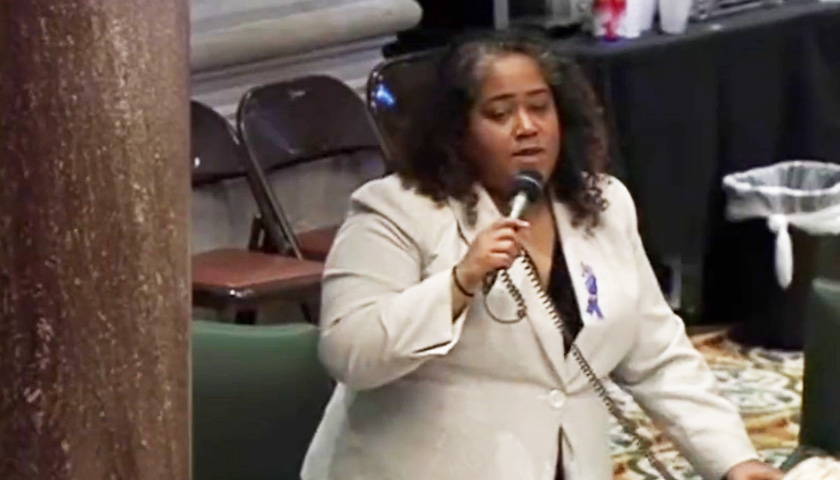On Thursday, the state legislature approved a bill that would restrict the use of shackles and other restraints on pregnant inmates. The bill now heads to Governor Lee’s desk.
The bill (SB 1412), sponsored by Democratic Senator Raumesh Akbari, “restricts the use of physical restraints on pregnant inmates; prohibits the use of solitary confinement for pregnant inmates and inmates who have given birth within the past eight weeks.”
“No child should be born in chains,” Senator Akbari said to her colleagues before the Senate voted to pass the bill without opposition.
“No child should be born in chains.”
After several years of advocacy, @SenAkbari’s bill to restrict the use of restraints on incarcerated pregnant women during child labor passed the Senate.
The measure promotes healthy pregnancies and healthy babies.https://t.co/zFu1tklYs5 pic.twitter.com/mlrDK0f7v4
— Tennessee Senate Democrats (@TNSenateDems) April 14, 2022
Only in specific scenarios such as when the inmate is moved within or outside of a facility, if the inmate is an immediate flight risk, if the inmate poses a self-threat or threat to the fetus or others, or if the classification level of the inmate requires restraints, the bill says the least restrictive restraints necessary should be used.
If signed by Governor Bill Lee, the legislation would add Tennessee to the list of at least 37 states having laws limiting the shackling of pregnant inmates, according to NPR. Meanwhile, more than a dozen states have no laws restricting the shackling of pregnant inmates and those that do often make exceptions for public safety or other reasons, according to the American College of Obstetricians and Gynecologists.
Federal law also restricts the practice of restraining pregnant inmates. The First Step Act, signed into law by President Donald Trump in 2018, bars the use of restraints on pregnant people in the custody of the Federal Bureau of Prisons and the U.S. Marshals Service.
An estimated 58,000 pregnant women pass through U.S. prisons and jails annually and thousands give birth or have other outcomes while still incarcerated, according to the Pregnancy in Prison Statistics (PIPS) Project.
– – –
Kaitlin Housler is a reporter at The Tennessee Star and The Star News Network.
Photo “Senator Raumesh Akbari” by Tennessee Senate Democrats.








